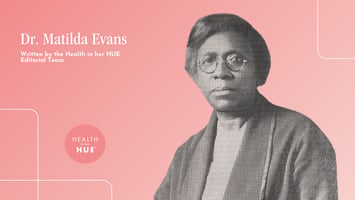When the world needed a breakthrough in the fight against COVID-19, Dr. Kizzmekia Corbett was at...
Dr. Dorothy Celeste
 In the scorching heat of the Mississippi Delta during the 1930s, Dr. Dorothy Celeste Boulding Ferebee and a team of Black women physicians, nurses, and volunteers traveled from plantation to plantation, offering medical care to sharecroppers who had been all but forgotten by the healthcare system. With little more than their knowledge, determination, and a commitment to service, they transformed the lives of thousands of Black women and children—providing essential maternal and child healthcare in places where doctors were scarce, and racism was rampant.
In the scorching heat of the Mississippi Delta during the 1930s, Dr. Dorothy Celeste Boulding Ferebee and a team of Black women physicians, nurses, and volunteers traveled from plantation to plantation, offering medical care to sharecroppers who had been all but forgotten by the healthcare system. With little more than their knowledge, determination, and a commitment to service, they transformed the lives of thousands of Black women and children—providing essential maternal and child healthcare in places where doctors were scarce, and racism was rampant.
Dr. Ferebee was more than a physician; she was a public health leader, an activist, and a fierce advocate for reproductive justice long before the term existed. At a time when Black communities in the rural South were denied basic healthcare, she led a movement that ensured Black mothers and their babies received the care they desperately needed.
A Passion for Medicine and Social Justice
Born in 1898 in Norfolk, Virginia, Dorothy Celeste Boulding Ferebee grew up knowing the value of education. Her parents, determined to see her succeed despite the barriers Black women faced, made sure she had access to the best schooling available. She went on to attend Simmons College and later Howard University College of Medicine, where she graduated at the top of her class in 1924.
But despite her exceptional qualifications, racism stood in her way. When she applied for internships at major hospitals, she was repeatedly denied because she was Black. Undeterred, she found a home at Howard University’s Medical School, where she became an instructor and later established a thriving obstetrics and gynecology practice in Washington, D.C.
Her work at Howard was just the beginning. She knew that true healthcare reform had to extend beyond hospital walls—and into the communities where Black women and children were suffering without access to proper care.
The Mississippi Health Project: Bringing Healthcare to Black Sharecroppers
In the 1930s, Black sharecroppers in Mississippi lived in extreme poverty, often working on plantations for meager wages while being denied access to healthcare. The infant mortality rate in these communities was staggering, and maternal deaths were all too common.
Determined to make a difference, Dr. Ferebee led the Mississippi Health Project—a groundbreaking initiative run by the National Council of Negro Women (NCNW). Each summer from 1935 to 1942, she and her team traveled deep into the South, setting up temporary health clinics in churches, schools, and cotton fields.
They provided:
✅ Prenatal and postnatal care for Black mothers, many of whom had never seen a doctor before.
✅ Vaccinations for children who were at high risk for preventable diseases.
✅ Nutritional guidance and health education, empowering women to take control of their families’ well-being.
It was exhausting, grueling work. They faced resistance from white doctors who saw them as a threat, and they often worked without basic medical supplies. But they persisted—because they knew that Black lives depended on it.
Fighting for Black Women’s Healthcare on a National Scale
Dr. Ferebee’s impact didn’t stop in Mississippi. She went on to become the second president of the NCNW, using her platform to advocate for national policies that supported Black women’s health. She pushed for:
✅ Better maternal healthcare laws to reduce Black maternal mortality.
✅ Increased funding for public health programs that served Black communities.
✅ Stronger reproductive rights protections, ensuring Black women had control over their own bodies and family planning decisions.
Her work influenced generations of Black women in medicine, public health, and advocacy.
Dr. Ferebee’s Legacy Lives On
Today, Black women are still fighting for the same healthcare rights Dr. Ferebee championed. Black maternal mortality rates remain alarmingly high, and access to quality reproductive care is still an uphill battle.
But her legacy reminds us that we have always fought for ourselves—and we always will.
📖 Want to learn more about the Black women shaping reproductive health today?
Read: Honoring Black Women’s Impact on Reproductive Health & the Future
💜 Join the Health In Her HUE Community! Find culturally competent doctors, share your experiences, and connect with other Black women advocating for our health.



